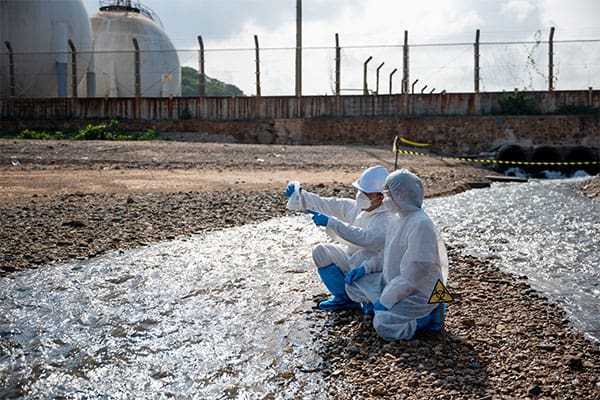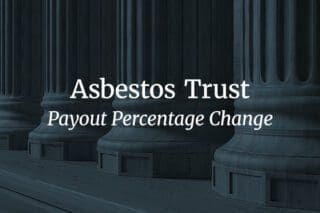
For decades, dangerous chemicals contaminated water at Marine Corps Base Camp Lejeune. Base employees and visitors used the tainted water for drinking, bathing and other activities. Trichloroethylene (TCE) and tetrachloroethylene (PCE) were 2 of the main contaminants. If ingested, TCE and PCE can cause serious illnesses. This case of water contamination may have harmed countless people at and around the base.
From 1953 to 1987, water at Camp Lejeune Marine Corps Base may have exposed as many as 1 million people to TCE and PCE. Regulators have linked these chemicals to serious diseases and conditions. For example, research indicates TCE can cause cancer.
Veterans, their families and civilians may have been exposed to TCE and PCE at Camp Lejeune. What health problems might this exposure cause and what help is available today? Below, readers can find a list of 3 main health problems tied to TCE and PCE. This may help past base visitors and personnel understand how to watch for signs of related illnesses.
Top 3 Health Problems Caused by TCE and PCE
Research shows that both short- and long-term exposure to TCE and PCE may lead to health problems. Major related diseases include kidney and bladder cancers, non-Hodgkin lymphoma (NHL) and cardiac defects. Other conditions and medical issues may also result from TCE/PCE exposure.
1: Kidney and Bladder Cancers
Exposure to TCE and PCE is associated with a higher risk of various cancers. Top among these are bladder and kidney cancers. The 2016 National Toxicology Program concluded that TCE causes kidney cancer in humans. Evidence from other studies shows an association between PCE and bladder cancer. Some symptoms of bladder and kidney cancer may be similar.
The above symptoms may not point conclusively to kidney or bladder cancer. TCE and PCE may also damage these organs and impact how well they function. People can discuss any potential symptoms with their doctors.
2: Non-Hodgkin Lymphoma
Researchers have also linked TCE/PCE exposure to NHL. This is a specific type of cancer that affects the white blood cells of the immune system. This may lead to tumors developing throughout the body. NHL symptoms include:
- Abdominal pain or swelling
- Chest pain
- Coughing
- Difficulty breathing
- Fever
- Night sweats
- Persistent fatigue
- Swollen lymph nodes in the armpit, neck or groin
- Unexplained weight loss
Anyone who was at Camp Lejeune from 1953 to 1987 may have experienced exposure to TCE and PCE. If any persistent symptoms of NHL develop, affected individuals should see a doctor. A thorough exam and diagnostic workup can help determine if NHL is causing the symptoms.
3: Cardiac Defects
Research shows a link between occupational exposure to TCE and cardiac defects in newborns. Cardiac defects may affect the shape and function of the heart. They may also affect how and where important blood vessels connect to the heart.
It is unclear how high the risk of cardiac defects may be for infants born to people exposed to TCE. In 1 study, TCE-exposed people had twice the average risk of giving birth to children with cardiac defects.
Camp Lejeune-associated people whose infants were born with cardiac defects should consider the timing. If their child was born during the contamination period, TCE may have harmed the child. Since cardiac defects may require lifelong treatment, financial assistance may be helpful.
Help for Camp Lejeune Victims
The Camp Lejeune Justice Act of 2022 became official in August of that year. It provides assistance for people affected by Camp Lejeune’s contaminated water. Affected individuals may qualify for compensation to help cover treatment for related health issues. Those who are eligible may be able to file a claim for compensation from the government.
Camp Lejeune claims can help cover costs, like medical expenses, related to TCE and PCE exposure. Qualified lawyers can help victims understand their options.


